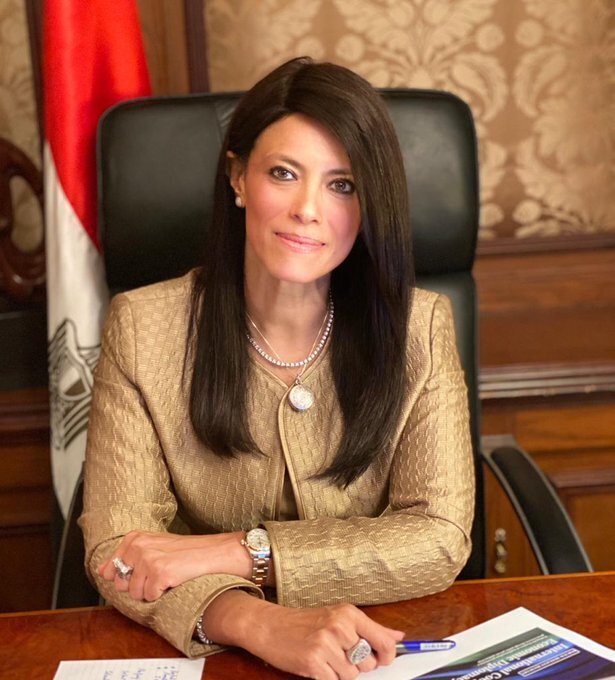
Five key ways to confront climate change in 2025
The World Weather Attribution highlighted five key ways to confront climate change in 2025; namely ...

Millions are flowing to Egypt from the World Bank, the European Investment Bank (EIB) and the European Bank of Reconstruction and Development (EBRD) to attain the Sustainable Development Goals.
The funds are meant to support small and medium sized enterprises (SMEs), improve air quality, combat climate change, reduce emissions of air pollutants and global warming, and improve solid waste management in Greater Cairo.
Egyptian Minister of International Cooperation Rania El Mashat announced on October 2 that EBRD will invest $ 50 million into Egypt-focused private equity fund Lorax Capital Partners (LCP) Fund II.
The minister said in a statement that the funds are meant to secure liquid money for small and medium sized ventures in the face of the fallout of the coronavirus pandemic.
Mashat underlined the importance of partnership with EBRD to realize development in Egypt at the governmental and private levels.
Meanwhile, EBRD Director and Head of the Equity Funds team Anne Fossemalle said EBRD’s investment in the LCD Fund II will contribute to the development of private equity in Egypt and will help to provide long-term capital growth to small and medium-sized companies in the region.
This investment marks the EBRD’s second investment into an Egypt-focused private equity fund, with the first being into Ezdehar Egypt Mid-Cap Fund in 2016.
Within this context, the EIB said in a statement on October 1 that it has signed a commitment of $ 22 million with the LCD Fund II.
At the first closing, the fund attracted $ 140 million of commitments, including from other international investors; the European Bank for Reconstruction and Development, International Finance Corporation, Proparco and the Egyptian American Enterprise Fund, the EIB said in the statement.
The fund manager, LCP FUND MANAGER BV will adopt a hands-on value-adding investment strategy and will seek to invest in enterprises with robust growth potential in important economic sectors including education, healthcare, manufacturing and services.
Meanwhile, the World Bank also sought to push forward Egypt’s drive towards the Sustainable Development Goals through approving a new $200 million project with Egypt to improve air quality, combat climate change, reduce emissions of air pollutants and global warming, and improve solid waste management in Greater Cairo.
Minister of International Cooperation Rania El Mashat said in a statement that this investment reflects the state’s commitment to protect the environment and combat climate change through the Green Recovery Plan, which creates a direct link between pollution and citizens’ health and productivity.
Mashat referred to the coordination that took place between the Ministry of International Cooperation and the Ministries of Environment and Local Development over the past period to complete the negotiations with the World Bank on the objectives of the project in accordance with the sustainable development goals.
The minister stressed that the ministry seeks to enhance economic diplomacy through three principles; regularly organizing multi-stakeholder platforms to ensure that all projects between development partners are streamlined and effectively, adopting a consistent Global Partnerships Narrative People&Projects&Purpose (P&P&P); and mapping ODA financing to SDGs for all projects with multilateral and bilateral development partners.
“The hazards of air pollution and climate change are endless and can span decades,’’ said Dr. Yasmine Fouad, Egyptian Minister of Environment. “Through this partnership with the World Bank, we aim to give our children and youth a healthier future, where they can prosper, grow, and fulfill their potential.’’
The new air pollution reduction and climate change project aims to modernize Egypt’s Air Quality Management System.
It is also meant to support solid waste management in Greater Cairo, including plans for the construction of an integrated waste management facility at the 10th of Ramadan City, the closure and rehabilitation of the Abou-Zaabal dumpsite, and strengthening the regulatory framework for waste management.
The project also aims to contribute to vehicle emissions’ reduction by supporting the piloting of electric buses in the public sector and related infrastructure, including charging stations, and assessing the technical and financial feasibility of scaling this up.
The project is also meant to implement activities aimed at behavioral change by communities and service providers and ensure citizen engagement in project design and implementation.
For her, Marina Weiss, Regional Director for Egypt, Yemen and Djibouti at the World Bank, said “For development to be sustainable and inclusive, it is crucial that environmental quality is tended to well, and not adversely affected by development in other areas, and that the most vulnerable groups of society are not bearing the cost of a polluted environment. This operation is an integral part of our work to improve the quality of life for Egyptians, enabling them to benefit from a whole array of development projects, while staying healthy and productive.’’
Egypt’s painstaking efforts to accomplish the Sustainable Development Goals have prompted these international financing institutions to give hand to Egypt to expedite its march as the world is striving to attain the SDGs.
The World Weather Attribution highlighted five key ways to confront climate change in 2025; namely ...
Climate change contributed to the deaths of at least 3,700 people and the displacement of ...
The EU has standardized charging ports for mobile phones and other portable electronic devices, all new ...


اترك تعليقا